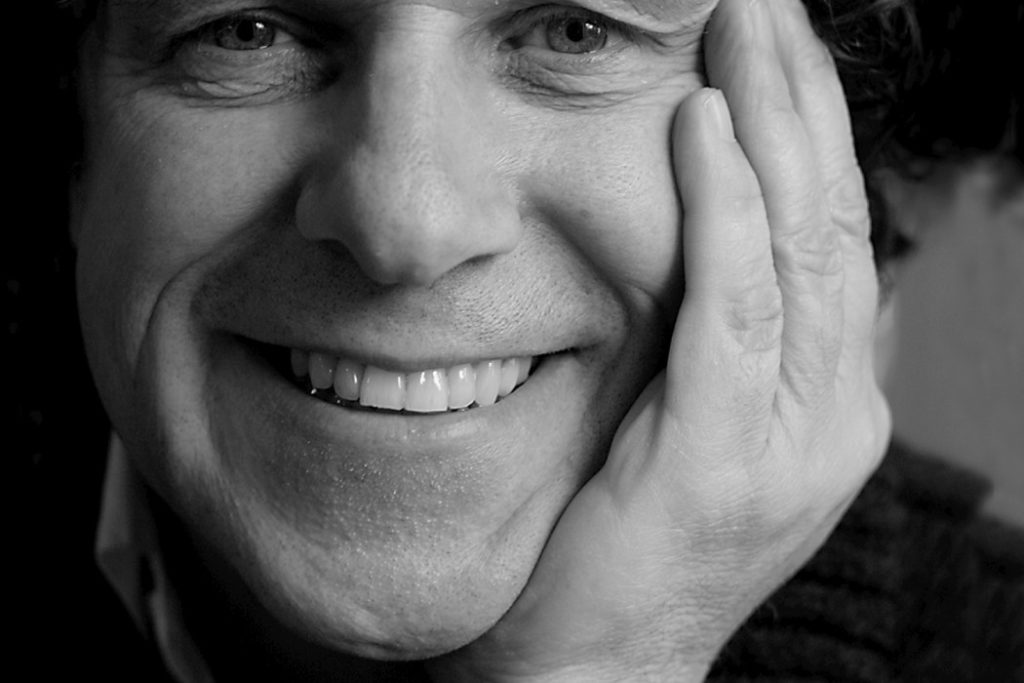He’s the guy who had a good time, all the time.
That’s what singer songwriter Leo Sayer believes will be written on his gravestone, when the unfortunate eventuality comes to pass. Our new writer Nicole Madigan spoke to the man himself ahead of his Brisbane show.
“I’m the eternal optimist so everything in my life is positive,” he said. “Life is beautiful.”
After just a few minutes of conversation, it was an easy conclusion to draw – Sayer exudes positivity and a zeal for life of someone half his age.
“Boredom, what is that? I don’t think I’ve ever had that. I’ve been self-employed since I was 19 years old. People have tried to tell me what to do but it doesn’t work. I do what I like.”
Fortunately for the rest of us, what Sayer likes to do is write and record good music – something he’s been doing for more than four decades, recently celebrating the 40th anniversary of Silverbird, his debut record.
He’s since released another 18 albums and had a string of top ten hits in UK, Australia and the USA.
Even so, Sayer says he’s still waiting to hit the big time.
“At 66 I’m still pushing to build a career,” says Sayer, only half in jest. “Eventually I’ll be successful.”
Most famous for songs such as One Man Band, romance ballad When I Need You and disco classic You Make Me Feel Like Dancing, Sayer’s jovial nature and big personality might lead the uninitiated to believe he’s nothing more than a 70s hit maker who can sing a catchy tune.
Not so.
Leo Sayer is a musician of remarkable talent with an extensive catalogue of songs and a fascinating “hybrid of styles”, according to Rock historian Glenn A Baker.
“Leo Sayer’s voice is held in constant admiration,” says Baker who describes Sayer as “an artist of delicious originality.”
“He has had number one singles and platinum albums across the world; songs that have become woven into people’s lives.”
Sayer himself describes his music as his own autobiography.
“They are all about adventures that I’ve had,” he said.
He talks about the time he begged his wife to take him back following an affair with a younger woman – a phone conversation that formed the lyrics to Orchard Road.
Sayer’s profuse optimism is in many ways at odds with his lyrics, often marked with melancholy and references to loneliness and solitude.
“I spent a fairly isolated childhood,” he says by way of explanation. “I relied on myself which made me strong but yes there was a lot of pain to be endured. I was very quiet, I was small and I was bullied quite a lot so I didn’t really pop out very much.
“The writings or poems of a lost childhood became the source material of my first three albums. I still draw on that today.”
It’s that very childhood that formed the catalyst for his future career. Born Gerard Hugh Sayer to devout Catholic parents in Sussex, his musical talents were discovered by the local priest, who encouraged him to pursue it further.
With music in the back of his mind, Sayer played in school bands, moving onto art school, only to drop out after becoming creatively frustrated.
He learnt to play the harmonica, spending time in Brighton and London, playing alongside successful bands in local folk and blues clubs.
Eventually, Sayer was discovered by producer David Courtney – and that’s when things got serious.
His breakout hit The Show Must Go On appeared on debut album Silverbird, which featured Sayer dressed as a Pierrot, inspired by a character in his favourite movie, The Children of Paradise.
“I spent an hour getting ready and then when I looked in the mirror I thought ‘Yeah that’s it’.
“I was born.”
The reaction to the striking cover was so strong, Sayer and Courtney decided the next logical thing was to appear as the clown and perform in pantomime, save for the singing.
“We had a single out and I was gradually becoming Leo Sayer and the white face just worked perfectly – it made such an impact.”
Sayer’s star continued to rise and twelve months later, true to a self-made promise, Sayer dropped the Pierrot costume.
“Suddenly the character is dropped and you kind of have to start again so I came up with a new costume, which looked like something from the Great Gatsby and it kind of worked.”
After releasing One Man Band, Sayer embarked on his first tour of Australia. What he found when he arrived was akin to Beatle Mania, and after that he dropped the idea of a costume all together.
“This is why, to the rest of the world Australia was a small island nation, but to me it was the centre of the universe.
“Because it was where I found me.”
It hasn’t been all smooth sailing though. Sayer was ripped off by a manager not once, but twice.
“It was traumatic indeed but my resilience and determination got me through.
“I put it all into song on my Voice In My Head album, and got it all out of my system that way.
“Life is far too interesting to let a rip off destroy it. I guess the loss of revenue has changed my life, but I like to think it’s worked out for the better.”
He’s also fallen victim to the fickle world of music, particularly since the inception of reality television.
“There were times which were bloody awful.”
“You’re on a high then punk comes in and punk is great, but when the whole record industry takes on punk then decides all the music before then is dead, the newspapers make a joke of you.”
“Basically your career is stripped away from you because of trends.”
At other times, there was no work on offer aside from “teaching kids to sing on a reality show.”
“Yet you’re being compared in an industry to them, that is a low point. The ball comes back though, all the low points create the high points.”
Once again, Sayer’s ‘look on the bright side’ mentality dominates the dialogue.
“If you have an inner ambition and inner hunger to make good music and you have a chance to do it, you do.”
Listen to Sayer’s lyrics and the same might be said for his personal life, with frequent tales of nostalgic love and heartbreak, seemingly contradictory to his happily single relationship status.
“It’s an eternal dichotomy. I love women, but they break my heart.”
Once married to his childhood sweetheart, Sayer admits to being a philanderer but says he’ll forever be in love with love.
“It’s bad for my health but I still chase love. Don’t we all?”
Indeed we do, and what better place to do so than Australia, a place Sayer has called home since 2005, becoming a citizen in 2009. He’s taken his new home to heart, becoming heavily invested in the environment and political issues.
“I love this country so much from the bush to the reef, it’s this fabulous place that’s big enough for me to explore.”
It’s that passion and exuberance that Sayer has channeled when writing his new album, which features new and original recordings.
“I don’t have kids so I’m not really looking at family, I’m looking at me and I’m looking at my songs as a family and the environment as a family. So I’m not just worried about the same things as everyone else.”
“The flora and fauna of Australia, the landscape of Australia is my pallet.
“My conscious has been woken up by recent activities in the world and being an observer in the world.”
Titled The Restless Years, Sayer says it’s apt given the current stage of his life and career.
“You look at that when you get older, is this my last voice that I’m going to be taking on now?”
Playing both forward and backward, Sayer says the new album will be easily recognisable as his, while encompassing a certain amount of reinvention.
“I like to shrug off familiarity, I hate comfort.”
A statement that pretty much sums up the man himself.
“My aspirations are almost all in my head.”
“I don’t have a fucking clue what Leo’s going to do next.
“I’m making it up as I go along. I’m inventing myself as I go along. Today has nothing to do with yesterday.”
“It’s exciting. Exciting to be Leo.”




